With ‘Suspiria,’ Radiohead Frontman Thom Yorke Faces His Fears, Writing First Film Score & Surprising Himself In The Process
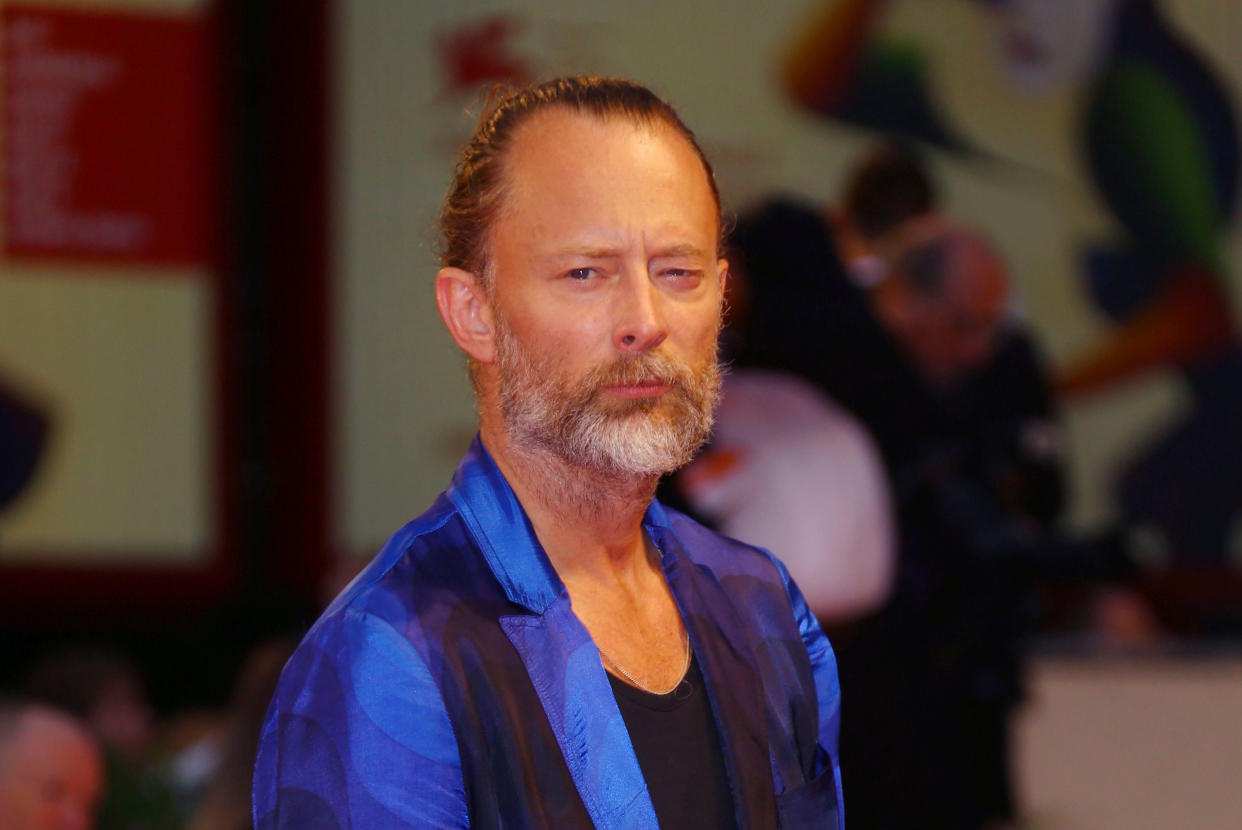
One of the most influential musicians of the last 30 years, Thom Yorke has always had a crisis of confidence, when it comes to scoring films. Approached to score David Fincher’s Fight Club back in 1999, the Radiohead frontman wouldn’t come around to film for another 19 years, making his debut as a composer this year with Luca Guadagnino’s Suspiria. Centered on a Berlin dance company run by a coven of witches, this homage to Dario Argento’s 1977 giallo classic would seem, on the surface, like a perfect match for Yorke, possessed of a tone and style that was right up his alley. And yet, even with Suspiria, Yorke needed convincing. “I was dithering a lot,” he says. “I put it off, and off, and off, because that’s what I do.”
Known for electronic experimentalism, his unique falsetto, and his beautifully melancholy compositions, Yorke explains his reticence to transition into film as such. “It was kind of knowing that the process is not your own,” the artist reflects. “That had always worried me.” Time was also a factor. As prolific as he has been to this point—recording nine albums with Radiohead, and two solo efforts—Yorke knew that signing on to a film meant placing himself in someone else’s hands for an extended period of time.
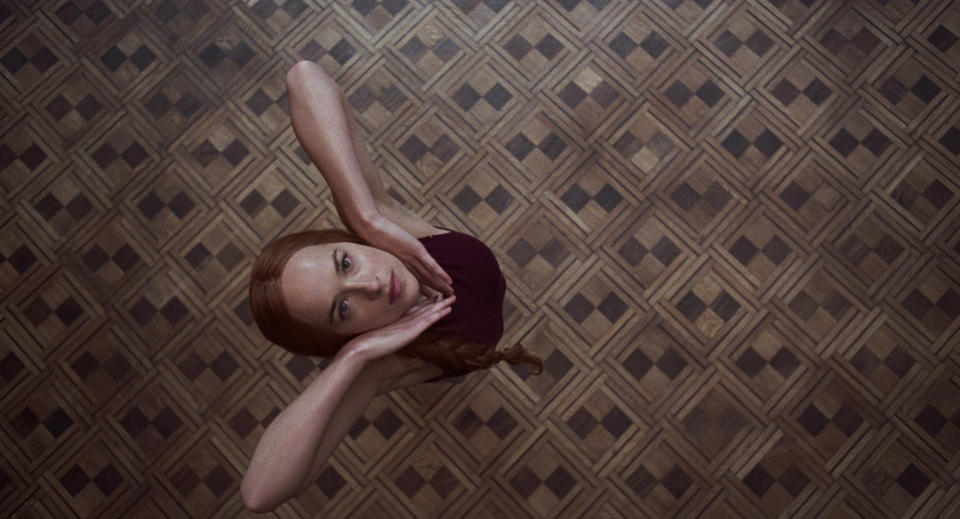
Before working with Guadagnino on Suspiria, Yorke knew very little about the director. “I knew I Am Love,” he says, “but that was kind of it.” Making one of the biggest leaps of his career alongside an artist he didn’t know, Yorke thought of Jonny Greenwood, his longtime bandmate, who has found success (and an Oscar nomination) scoring films for Paul Thomas Anderson and more. Tapping into the freedom with which Greenwood has gone about his work, Yorke found invaluable wisdom in the guitarist’s experience. “He was saying, ‘Spend a lot of time at the beginning, before you get locked into picture, or locked into a particular scene, experimenting, f*cking around, doing what you want,’” Yorke recalls. “And that sort of experimenting, I found, was the best part of it.”
In the end, Yorke found that film composing, while tiring, was far more gratifying than he imagined, and less unmanageable than it seemed. Putting his all into Suspiria, the musician has found his efforts rewarded several times over. With “Suspirium,” Yorke made the Oscar shortlist for Best Original Song, though he’s faced with stiff competition (from the likes of Lady Gaga and Kendrick Lamar), as he looks to make the category’s final five. Undoubtedly, a statuette would be nice, but fortunately, Yorke’s first film experience offered him so much more. Reinventing himself musically over the years, in pursuit of a sound that felt right, Yorke had an interesting moment, listening to his Suspiria score for the first time. Reviewing his double album, which now stands on its own, Yorke didn’t hear himself in this music at all. Sitting down with Deadline today at his Los Angeles residence, the musician explained what this meant to him.
What convinced you to say yes to Suspiria?
When they approached me, there were so many good reasons to do it, but it started ultimately with this joke I had with myself: “If I’m going to do a film soundtrack, then obviously it’s going to be a horror film.” It went from there, really, but I just really enjoyed the way Luca and his guys—the producers, and the editor—talked about what they wanted to do. I thought they had a really good attitude, and there was an air of madness to the whole project, which I immediately was attracted to.
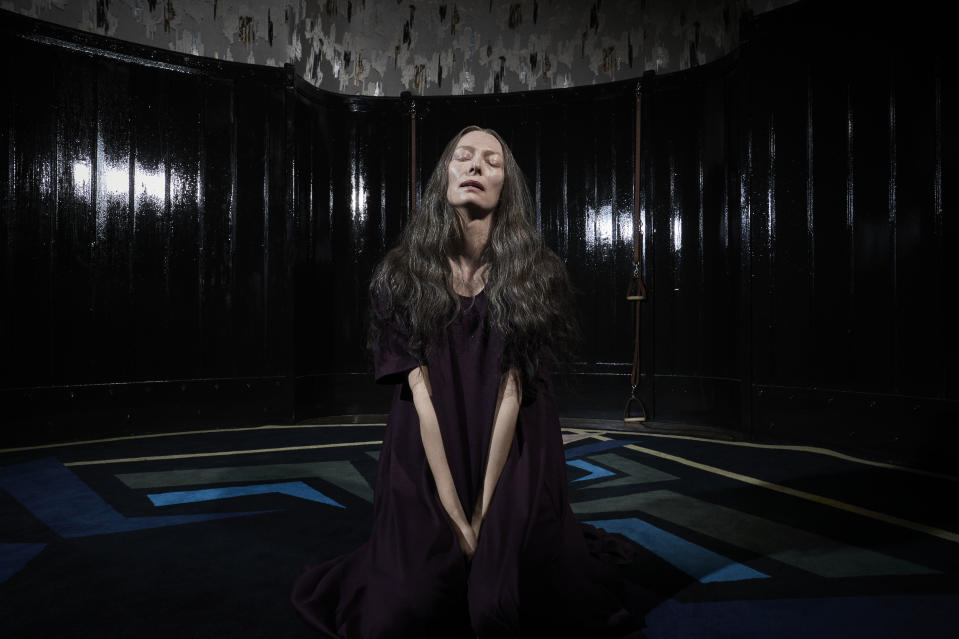
What were your conversations with Luca and his team like, when you decided to take this on?
They talked a lot about trying not to do any horror clichés, and the idea of female energy, and not wanting to remake the film in any normal sense.They were just taking the initial scenario and then going their own way with it. It was more just a general attitude, which I can’t really put into words, about where they wanted to take things, which I thought was really cool, and felt some identification with. Then, they sent me the script, and obviously scripts are a good way [in] for me. Even though they’re not necessarily indicative of how you’re going to feel about something, it at least gives you some idea of the characters involved, and the mood.
What kind of relationship do you have to the medium of film? You’ve said in the past that you’re not a film buff, per se.
I guess I’m not a film buff, but films really affect me, and I am awe of anybody who can get a film off the ground, even if it’s sh*t, because it takes so much commitment and energy. It makes making a record look a relatively simple process, just to coordinate and be the artistic director of all these different areas, and all these different people, and all these different moving parts, and actors and f*cking technicians, and trying to get the money together. And I just basically have to sit at a laptop with my mates.
I spent Christmas watching loads of films. We watched, probably inappropriately, Children of Men the other day, and that’s a work of f*cking genius. I’ve watched it maybe five times, and every time I’ve enjoyed it, but this time it was like a religious experience. It was f*cking incredible, I think because there’s elements in that film now, when you watch it, that are absolutely shocking. I know it’s based on a book, but they’re so close to where we could go next. It starts with this footage of immigrants behind fences, being subjugated by the police. It has footage of people being put through immigration channels to try and get in the country. I mean, I’ve been through those immigration channels; when you come off the f*cking train back into England now, it’s starting to feel like Children of Men. There’s whole areas of that film that are like, “Jesus Christ, man.” It’s so beautifully put together, the way he uses music, the pace of it, the fact it’s absolutely terrifying. From beginning to end, it never lets up. F*cking genius, that film.
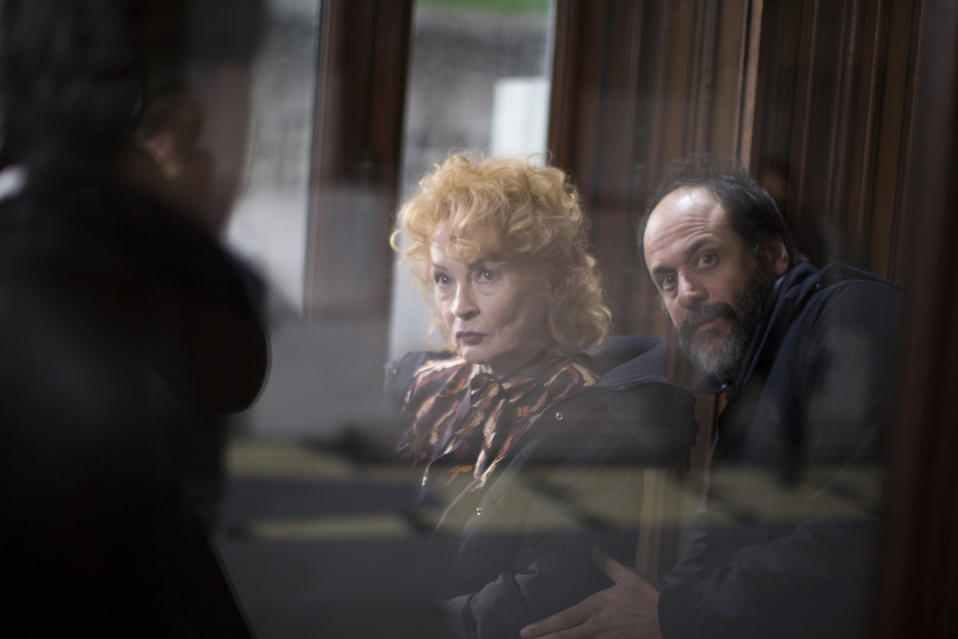
Working with Luca on Suspiria, did you note any parallels between his process and yours? Are there connections to be made between the process of producing films, and the process you undertake in music?
I think the processes are similar. I guess I’ve done enough music videos now to maybe understand a bit of it. I’ve watched Paul [Thomas Anderson] work, and I’ve watched Luca work, and I’m guessing that to some degree, you have to have some sense of where it needs to go, and some sense of, “This will work; this doesn’t.” You’re making decisions all the time. You can see something in your mind, and you’re trying to get there, but you have to enjoy the process. You have to allow it to develop. You have to allow the people you are working with to bring things to it.
If you take Children of Men, for example, I feel like the film had a great story to tell, and it’s how you choose to tell it, and the decisions you make every day in order to do that. So, likewise, I find that trying to make a record, you’re trying to get somewhere. You’re trying to piece together something. This sounds really waffle-y, but it’s not. You’re just making a series of creative decisions, and you don’t know necessarily if they’ll work. The other one I watched the other day was Dunkirk, which is such an elegant movie, because he uses space so much in it. It’s all about the endless ocean, as the Spitfire falls into it. So, initially, your question was “Am I a film buff?” No, but I do get very f*cking carried away by watching films I love. I find it very inspiring, and I’ve discovered over the years the two processes are not that dissimilar. But the one I do is much more manageable. [Laughs]
Do you consider yourself visually minded, as an artist? Your music tends to paint a very specific picture, and I know you’ve collaborated with Stanley Donwood on artwork for most of your albums.
Yeah, we met at art college. We did English Literature and Art—we were on the same course. I used to just simply say, “Oh, well, when the music works, I see pictures.” Which is true, but I’m sort of halfway between the two. I see the music, in my mind, as the actual physical placements along the sequencer. I see it as words I’m saying, which is another thing completely, and then the overall thing will be some sort of visual element. So, it’s strange to work with someone else. Before I worked with Tarik [Barri, audiovisual composer and computer programmer, who has toured recently with Yorke], the only times I would really experience this was either when I was making videos—trying to have a conversation with the director, so that we’d get somewhere visually that felt right—or in a live scenario with Andi [Watson], who does the lights for Radiohead. So, I’ll have my personal feelings towards a song visually, but what I’ve discovered over the years is to say as little as possible, and just shout when someone does something similar to what I see. I don’t necessarily trust my vision of it, because I’m a musician. I don’t think I’m close enough to get that right, but at the same time, when I see something visually that is close to what I have in my mind, the circle is complete.
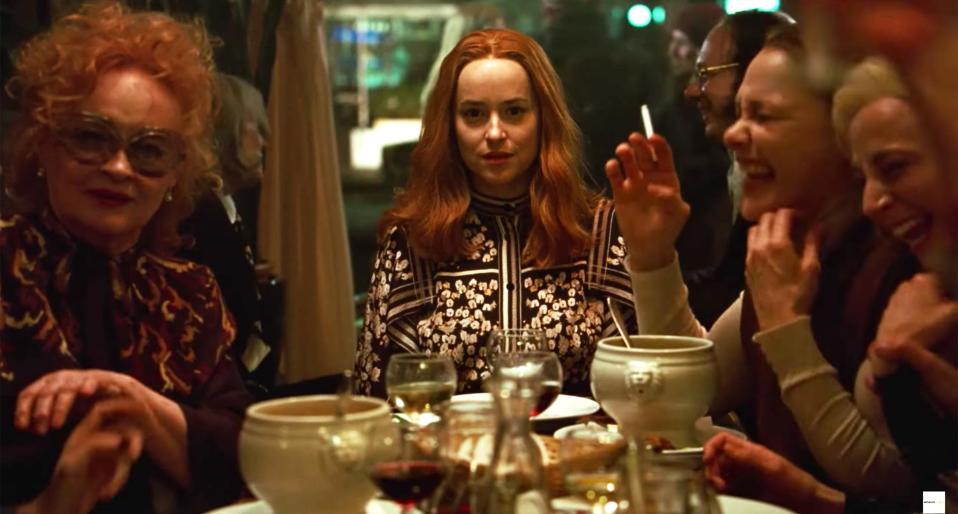
For example, when we were working on Kid A and Amnesiac, it was a long, torturous process, but what was really interesting was I spent a lot of time working on the artwork with Stanley, and we had two studios operating most of the time. In this sort of mezzanine, in the middle, we were doing the artwork, and we were also painting in the shed, in the garden, that had rats in it. And that was a kind of revelatory thing for me to discover—not that the visual is as important as the music, because it’s not for me. I’m writing the music with the guys, and that’s where the energy for it comes from. But when I discover with Stanley something meaningful visually that goes with it, whether it be something really stupid like the bear, or a pool of blood, or the mountainscapes we were creating with paintings, for some f*cking reason it’ll press a button in my head, and I’ll think, “That’s it. Now, we’re getting somewhere.” And I have to have that bit. If I don’t have that bit, it’s not right. I don’t know what I’m doing yet.
Suspiria centers on the world of dance, a world you seem to appreciate. You’ve collaborated with dancers a number of times. Most notably, you joined choreographer Wayne McGregor in orchestrating a wild, viral dance video for your 2011 track, “Lotus Flower.”
It was a wild, real-time conversation/collaboration thing. It was really fun.
You also worked with the late dancer and choreographer Merce Cunningham, on a project called “Split Sides” in 2003.
His method of doing it was like randomizing, which I guess was a collaboration. It was certainly inspiring, yeah.
In your live performances, music and dance seem inextricable. Was the experimental dance of Suspiria a compelling aspect to this film from the start?
Yes, it really was. I thought Damien Jalet, the choreographer, really did some amazing work for that film.
What do you enjoy about this form of expression? What do you get out of it?
I don’t know. I’ve always wanted to dance. I always have danced, even in my own bedroom, and it was quite weird for me to then have a guitar strapped around my neck for years, or be sitting at the piano for years. Then eventually, we started doing tracks like “Idioteque,” where [it was] like, “Oh, okay, now I’ve just got a microphone. Finally.” But I never said to myself, “I’m into dance. I like dance.” It just sort of happened. It’s one of those things where I don’t know what the f*ck I’m doing, and I don’t care anymore. But at the same time, I would not say I’m dancing. I would say I’m just not, not dancing, if you know what I mean.
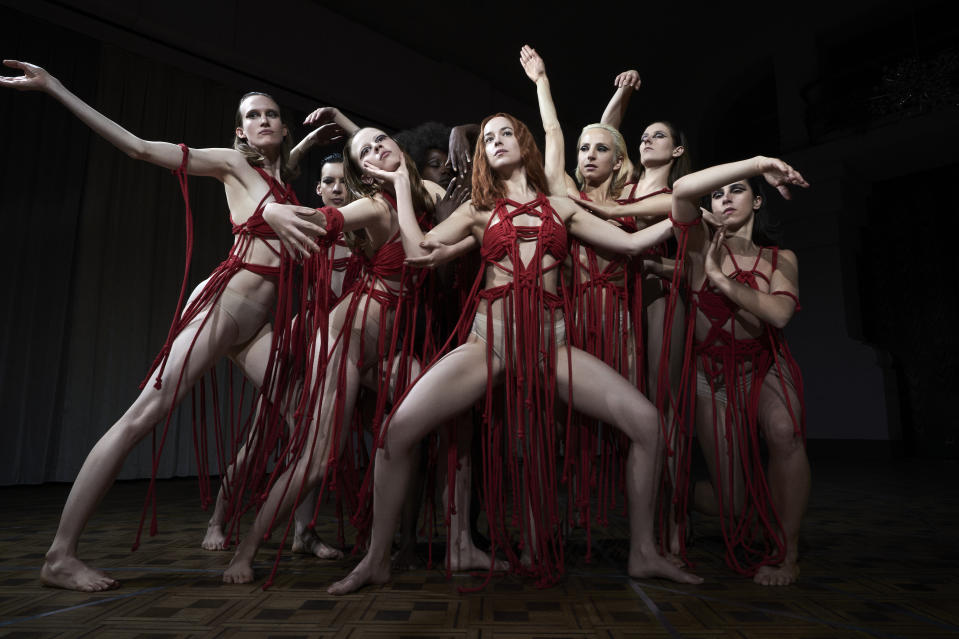
But at the same time, human movement and music for me is a really exciting thing, and the more interesting choreography, the more interesting dancing is being produced and put on television, the more pushing of the boundaries of human movement, the better. Because I’m f*cking sick of seeing all this lame ass choreography in music videos.
Supposedly, while crafting your Suspiria score, you were examining the ways in which music can support a film, and how it can be used to cinematic effect. What did that look like for you?
The obvious thing is that every time I sit down to make music, I’m hanging around a song, hanging around a structure of chord progressions, or a melodic idea. With this, I was building my own studio, however badly, and getting all this equipment that I’d bought, and f*cking around with it—and having an excuse to do it, but not one that was like, “Please, just write me an album of songs”—was a huge thing for me. And realizing that nothing is wasted when you’re working in studio. You think it is. You always have that butt-clenching fear of, “Oh my God, I’m wasting my time,” and then you realize quite quickly that there’s no such thing. Yes, you might do stuff that you might not use, but in that process, you’ve discovered something. You’re creating things, and you have a vague idea of some aesthetic sensibility, of where you’re trying to go. It’s a horror film, but you don’t want clichés, so you’re finding another way. And it’s not just songs. You’re not constricted in that way.
What about the scoring process was dramatically different from what you’ve done in music to this point? And how did being put through this process impact you, in the end?
Partly, the big risk was working to commission. Someone is saying to you, “I need a dance sequence to a piece of dance that’s already written, and it has to follow certain mathematical rules.” And you’re like, “What the f*ck?” It’s a challenge, a problem-solving thing, and you’ve also got to find some emotional thing. So in the end, you find yourself doing a huge amount of work that you would never normally do, because each piece is essentially a response to either a request, or a scene that you’ve been sent, or some idea in the script, or a character. So, none of those things are you.
The lyrics in your songs for the film aren’t about you. But then, your lyrics often sit somewhere between the personal and the oblique.
Yeah, it’s never autobiographical, what I do, and it’s always to some extent oblique. But it was like taking that to a new level. When they were mixing the film, me and Sam [Petts-Davies, producer], at the same time, were taking all the elements, used and not used, and trying to make it its own record—and in the process of doing that, discovering that we created something so f*cking dark that even I was surprised. When I finally sat down after we’d mastered it and listened to it, I’m like, “Wow. What the f*ck is this? Who is this guy?” And that was really nice. That was the nicest bit, to barely even recognize myself in some of it.
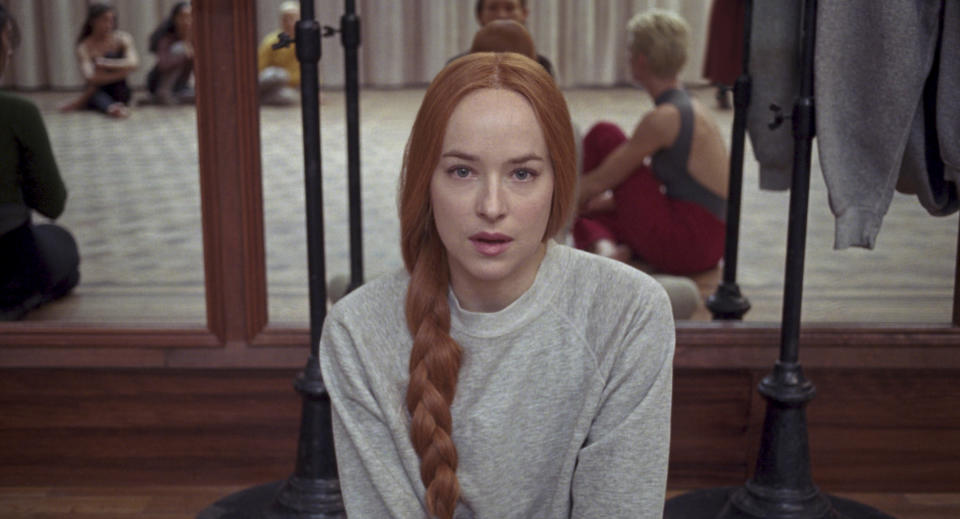
Lyrically, what was the hook on these songs? Thematically, the film contemplates the human body, its fragility and its destruction.
Cheating death, or the consciousness of death, impermanence. I had this vague idea of what Luca told me before the film started, of there being some sort of melancholy, which was making it not a normal horror film. Then I read the script, and I could kind of understand what he meant. And I found that really inspiring, the idea of a sadness, in the midst of what is kind of a horror film. So, I started writing a waltz, and it just sort of came out. The lyric, “This is a waltz, thinking about our bodies, what they mean for our salvation,” that’s literally the first thing that happened, and everything else flowered out of that. I sent it to Luca, just a recording on [my phone], and said, “Is this a good place to start?” and he was like, “Oh my God, this is it.” So, it was one of those weird things, where I signed up to do a horror film, expecting to do all these great electronic experiments, and the first thing I do is sit in front of a piano, and record something on a phone.
You don’t strike me as someone who’s particularly concerned about awards. What would it mean for you if you were to earn an Oscar nomination for Suspiria?
The way I’m looking at it is, I’m very aware that normally, soundtracks get lost—and I don’t want it to get lost, because I worked really f*cking hard on it, and it was really important to me. You’re right: Normally, I would be like, “F*ck that.” But to be honest, any sort of attention that the work gets, I’d be really happy about, because of everything I’ve been saying, really. Collaborating with Luca and creating this whole thing was a massive thing for me, and a sh*t-ton of work—and I’m surprised at how proud I am of it.
It’s been suggested that you may have another solo album coming next year. Is there truth to that?
Yes, that’s all based around what we’re doing with Tarik. What I’m trying to do is finish that, and then I can move on to the next thing, because it’s been hanging there for ages, and it’s been [in] this live show, and we need to get it down into a record now.
Related stories
Get more from Deadline.com: Follow us on Twitter, Facebook, Newsletter

